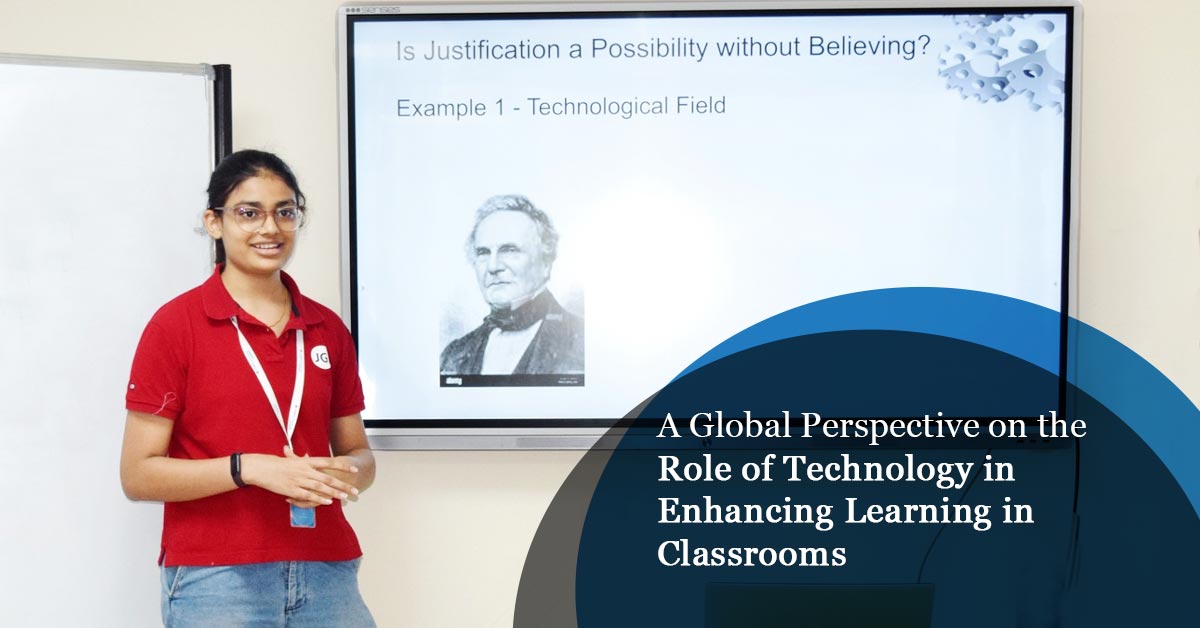In a constantly evolving world, technology has become an inseparable part of our lives. It transformed education, promising fresh avenues for learning and converting traditional classrooms into dynamic information centres. This is notably true in International Baccalaureate (IB) and the Cambridge International General Certificate of Secondary Education (IGCSE) programmes, where technology has played a pivotal part in enhancing the learning experience for learners around the world. In this blog, we will explore the use of technology in IB and IGCSE classrooms and analyse how it has improved learning results globally.
- Access to Information and Resources: One of the key benefits of technology in IB and IGCSE classes is infinite access to information and resources it gives. Students may explore a wide assortment of instructional information, read research publications, participate in interactive learning platforms, and connect with experts from across the world with the internet at their fingertips. This information availability enables students to explore deeper in subjects, develop critical thinking abilities, and get a global perspective.
- Interactive and Engaging Learning: Technology now provides a plethora of dynamic resources and platforms that foster active learning and participation by learners. Virtual simulations, educative games, and multimedia presentation makes it easy for learners to absorb challenging subjects. Furthermore, interactive tools and discussion boards allow learners to interact and share information beyond geographical borders, establishing a feeling of global community.
- Personalised Learning: Each learner has distinct learning requirements and interests. Technology provides the potential to tailor educational experiences to individual needs, encouraging customised education. Educators can track the advancement of learners, determine areas for progress, and give focused interventions using flexible learning software, intelligent tutoring systems, and data analytics. This personalised approach encourages learner independence, confidence, and improves academic outcomes.
- Global Connections and Cross-Cultural Understanding: Technology has tremendously benefited the development of international linkages and multicultural knowledge in IB and IGCSE programmes. Global learners may partake in relevant exchanges via virtual meetings, online collaborations, and social media platforms. This exposure to multiple points of view fosters awareness of different cultures, enhances intercultural communication skills, and equips learners for the globalised community they will enter once they complete their education.
- Preparation for the Digital Age: In an expanding digitised world, technological aptitude is vital for future success. The IB and IGCSE programmes acknowledge this requirement and integrate technology into their curricula to educate learners about the obstacles and potential that the digital era presents. Learners acquire the required abilities to thrive in subjects such as science, technology, engineering, and mathematics (STEM), as well as other disciplines involving digital literacy, by incorporating coding, robotics, data analysis, and other technology-related skills.
The value of technology in IB and IGCSE education cannot be undermined as it has altered the educational environment by providing learners with knowledge, encouraging dynamic and engaging learning experiences. It has enabled personalised instruction, developing global connections, and equipping them for the challenges of the digital age. By embracing technology, IB and IGCSE classrooms will thoroughly transform into innovative spaces for global learning, cultivating well-rounded individuals capable of thriving in the twenty-first century.
